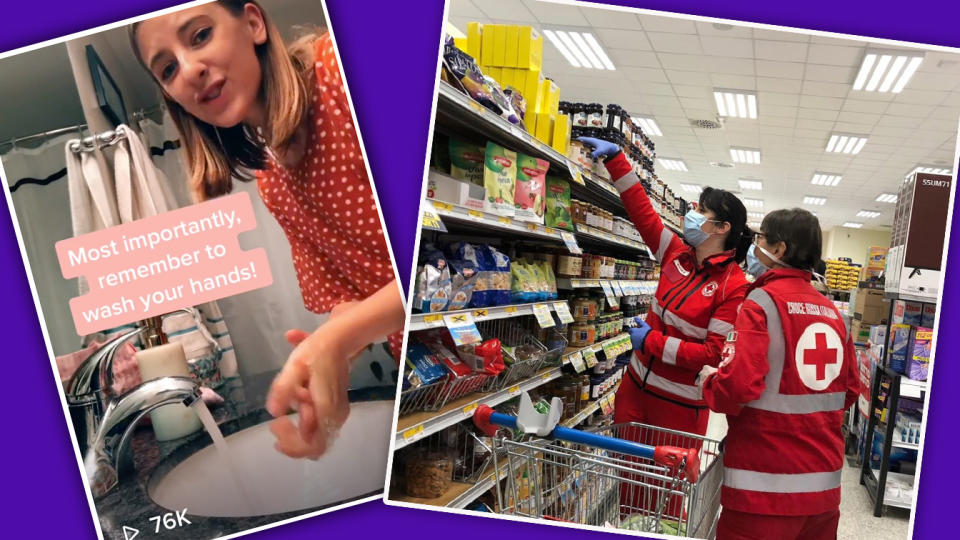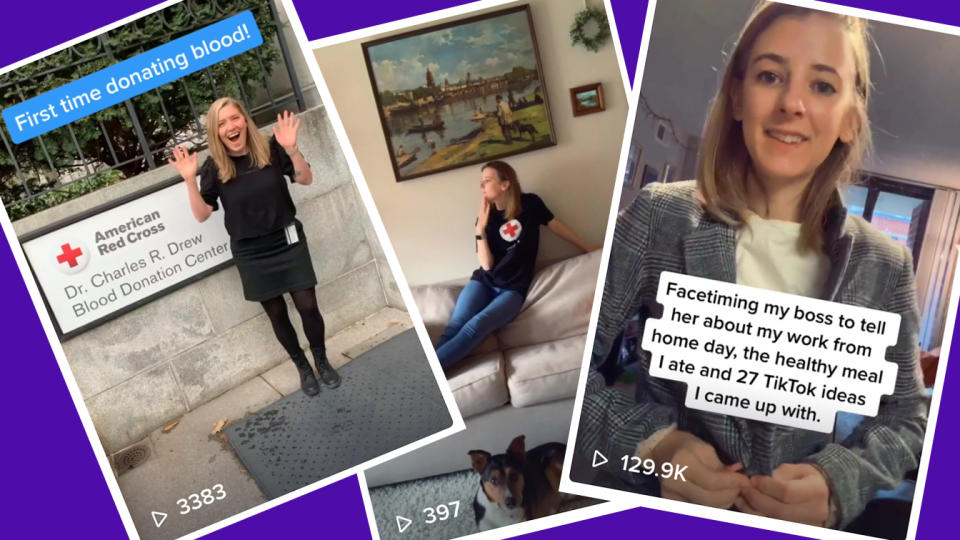Why the Red Cross and other health organizations turned to TikTok and Instagram to save lives
WASHINGTON — What does the American Red Cross do when it’s in desperate need for blood? Pivot to Instagram.
During the past few weeks, the humanitarian organization has turned to multiple social media channels to recruit users who tend to skew younger to help fill its desperate need for donors during the coronavirus pandemic.
According to Megan Weiler, senior director of social engagement for the American Red Cross, more than 4,500 Red Cross blood drives have been canceled due to the spread of the coronavirus, which has resulted in approximately 150,000 fewer donations. The organization is now in desperate need.
“We are facing a severe blood shortage, and it is really important that we inspire people to get out and to roll up their sleeves,” Weiler told Yahoo News.

Individual donor stories are highlighted on the American Red Cross Instagram feed, and its official account boosts users who tag the organization in stories. All this is part of a larger effort to highlight visibility and, it’s hoped, save lives.
“We’ve also been able to tap into the Instagram stories and see a lot of young people getting out and sharing, you know, selfies from the donor chair, and then we’re able to reshare those kind of organically and spread the word about people getting out and donating,” said Weiler.
The Red Cross is one of many health organizations embracing less-road-tested social media platforms to reach young people — a population counting for a third of all coronavirus cases, according to the Centers for Disease Control and Prevention. As cases continue to increase in Europe, the White House has begun to emphasize that asymptomatic young people risk passing on the coronavirus.
“There are concerning reports coming out of France and Italy about some young people getting seriously ill, and very seriously ill in the ICUs,” said White House coronavirus response coordinator Dr. Deborah Birx during a press conference.
“It may have been that the millennial generation, our largest generation, our future generation that will carry us through for the next multiple decades, there may be disproportional infections among that group,” she said. “We need them to be healthy.”
Both the Red Cross and the World Health Organization have also embraced TikTok — a social networking platform that hosts short-form videos. TikTok, which features dance challenges, memes and political commentary, has become something of a cultural marker and gathering place for Generation Z.
WHO did not respond to requests for comment about its use of TikTok.
The Red Cross’s TikTok feed has no traces of the expected serious tone of a global humanitarian organization — instead, the most recent video features a staffer doing the “flip a switch” challenge, making light of how her wardrobe has changed since she’s begun practicing self-quarantine.
Others show the same staffer sharing her internal monologue as she washes her hands for at least 20 seconds. Videos on the WHO feed are a bit more traditional, with doctors addressing the camera on how to properly distance socially.

Weiler said her team has had fun experimenting with a more jocular tone and exploring what popular TikTok challenges map to their various needs.
“I definitely think Instagram and TikTok are a great place specifically to reach the younger audience and to be able to share the severity of the situation and to be able to spread best practices,” said Weiler.
Even Dr. Anthony Fauci, director of the National Institute of Allergy and Infectious Diseases, sat down with the popular Barstool Sports podcast, “Pardon My Take,” to connect with younger listeners who may not binge on CNN or MSNBC all day.
Weiler emphasized the importance of individuals like Fauci and groups like her own to speak to specific generations in spaces native to them.
“We need to speak to wider, younger audiences. In order to do that, you need to be where they are,” she stressed. “And they are on social media.”
For a nonprofit organization like the Red Cross, social media has proved to be an effective way to reach people directly, according to Weiler.
“During an age of misinformation,” she said, “it’s really important that we are out there speaking facts and sharing the mission of the Red Cross, in hopes of inspiring people to volunteer with us or to donate blood or time or money.”
_____
Read more from Yahoo News:




